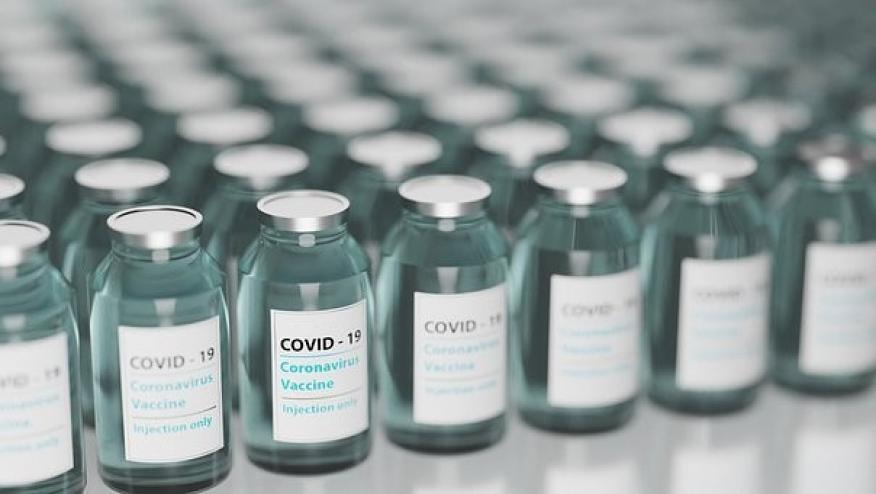Best of 2021: Israel provides COVID vaccine answers for rheumatic disease patients Save

The question as to how autoimmune rheumatic disease patients fare with the COVID vaccine is one being asked in rheumatologists’ offices everywhere this year, and at the EULAR 2021 Virtual Congress, data presented from Israel, one of the first countries to vaccinate on a broad scale, has provided much-needed reassuring answers.
Ever since effective COVID-19 vaccinations started to be authorised by regulatory bodies around the world, questions have remained as to whether they might be safe and effective in different patient populations. Particular concern has surrounded rheumatic disease patients, given the recent experience of other vaccines being less effective with rheumatic disease therapies, and adjuvants flaring the rheumatic diseases themselves.
Clinicians and patients alike have therefore looked to real-world experience to understand the impact of rheumatic disease, and its attendant therapies, on a vaccine critical during the current pandemic. While real-world use of US and European vaccines has only occurred over the last six months, some countries have been able to scale vaccination particularly rapidly across their population. This has presented the opportunity for clinicians in these countries to be the first to observe the performance of the COVID vaccine in large numbers of rheumatic disease patients.
Researchers from one such country, Israel, presented data addressing this in a late breaking abstract (LB0003) at the EULAR 2021 Virtual Congress. Dr. Victoria Fruer and colleagues from three hospitals in Tel Aviv, Israel described their experience with the Pfizer-BioNTech COVID-19 vaccine in 686 prospectively enrolled autoimmune inflammatory rheumatic disease patients – by far the largest such cohort described so far. These patients, with a variety of different diseases including RA, PsA, axSpA, SLE, IIM, and vasculitis, all had serum IgG antibody levels against SARS-CoV-2 spike S1/S2 proteins measured 2-6 weeks after their second vaccine dose.
Of this patient cohort, 86% were able to achieve antibody levels meeting seropositivity cut-offs. While this falls significantly short of the 100% a comparator group of 121 healthy controls was able to achieve, it still represents an encouraging result for autoimmune rheumatic disease patients. Notably, in this cohort, only one patient of 686 subsequently developed COVID-19, although unfortunately they subsequently died as a consequence.
It should be noted that not all patients were able to mount an immune response equally well. Patients with myositis and ANCA-associated vasculitis fared particularly badly, possibly because these diseases are often treated with rituximab, a therapy conferring a markedly reduced antibody immunogenic response compared to healthy controls. It was notable that immunogenicity in patients who had been treated with rituximab became more likely the longer after rituximab treatment they received their vaccination, with the first 90 days demonstrated to be particularly problematic. Patients prescribed mycophenolate and abatacept also had impaired responses, and to a lesser extent patients taking corticosteroids also demonstrated impaired capacity for immunogenicity.
While much concern has surrounded the safety of COVID-19 vaccination, in this cohort few adverse events were seen. Three patients did die during in the months following vaccination, with two dying of pre-existing comorbidities and one dying of a flare of previously stable vasculitis, although no clear contribution from the COVID vaccine was clear in any of these cases. Notably, for patients where diseases such as RA, PsA, axSpA, and SLE where disease activity measures were recorded, post-vaccination indices remained stable.
While more details and more data will be required, and immunity apart from antibody response may be important, these data have provided further reassurance to rheumatologists and rheumatic disease patients at a time when vaccine tolerability and effectiveness remain critical. Further data and future studies will allow for patients with autoimmune rheumatic diseases to gain further reassurance about the safety in having a COVID vaccine, and the protection they might get from it.
Furer V et al. ‘Immunogenicity and safety of the BNT162b2 mRNA COVID-19 vaccine in adult patients with autoimmune inflammatory rheumatic diseases and general population: a multicenter study’ https://ard.bmj.com/content/80/Suppl_1/200
Editor's note: This article originally appeared June 7, 2021, and is being published again today as part of RheumNow's Best of 2021.










If you are a health practitioner, you may Login/Register to comment.
Due to the nature of these comment forums, only health practitioners are allowed to comment at this time.